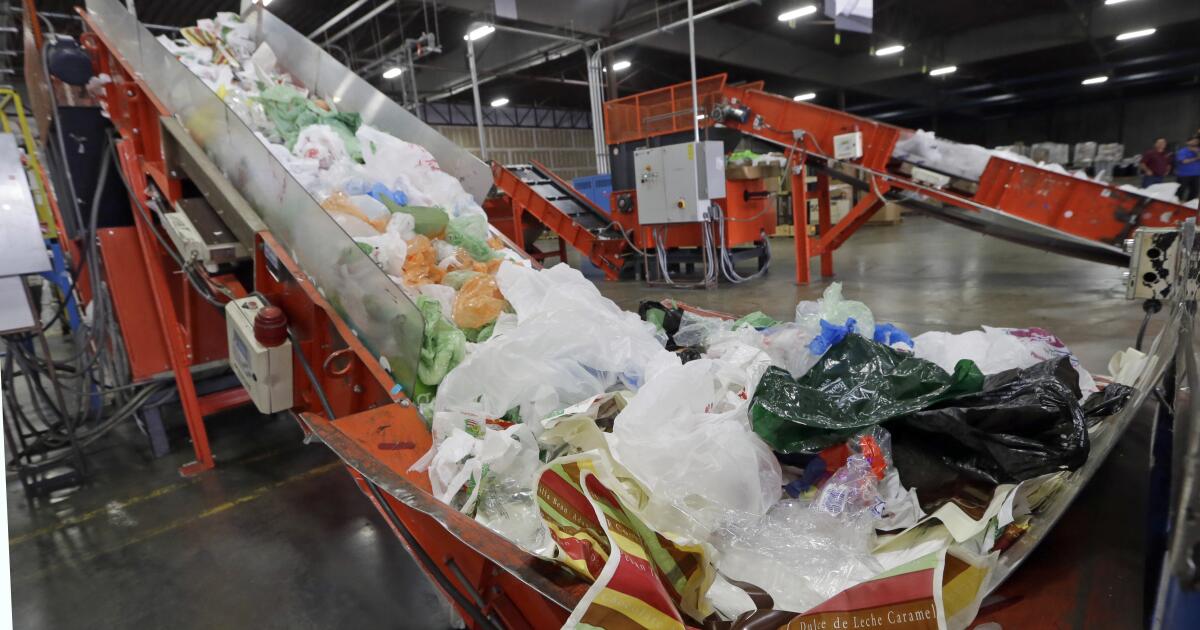California’s Bold Move to Eliminate Plastic Bags: A New Era for Checkout Lanes
In a significant legislative shift, California has taken a decisive step towards reducing plastic waste by passing a law that will eliminate the choice of “paper or plastic” at grocery store checkout lanes. This move comes roughly a decade after a previous attempt to ban plastic bags fell short, marking a renewed commitment to environmental sustainability and waste reduction.
The Legislative Journey
State Senator Catherine Blakespear (D-Encinitas) and Assemblymember Rebecca Bauer-Kahan (D-Orinda) spearheaded the initiative with the introduction of Assembly Bill 2236 and Senate Bill 1053. Their goal was clear: to close the loophole that allowed grocery stores to offer “reusable” plastic bags for a small fee. The legislation, which received overwhelming support, is now poised to be signed into law by Governor Gavin Newsom.
“Instead of being asked do you want paper or plastic at checkout, consumers will simply be asked if they want a paper bag,” Blakespear stated. This straightforward change aims to eliminate plastic bags from the point of sale, significantly reducing the plastic waste that has been contaminating California’s environment and waterways.
The Plastic Waste Crisis
The urgency of this legislation is underscored by alarming statistics. A report from the consumer advocacy group CALPIRG revealed that California discarded approximately 157,385 tons of plastic bag waste in 2014. By 2021, that figure had surged to 231,072 tons—a staggering 47% increase. Even when adjusted for population growth, the per capita waste rose from 4.08 tons per 1,000 people in 2014 to 5.89 tons per 1,000 people in 2021.
Experts attribute this rise to a 2014 law that allowed grocery stores to provide thicker, reusable plastic bags. While these bags were marketed as environmentally friendly, they often ended up being used only once, contributing to long-lasting pollution. “On average, people use a plastic bag for 12 minutes to take their groceries home, and then it remains in our environment for hundreds of years,” Blakespear noted, highlighting the long-term consequences of plastic waste.
A Unifying Effort
The new legislation has garnered support from both environmental groups and the California Grocers’ Association, an unusual alliance that has likely contributed to its swift passage through the Legislature. Louis Brown, a representative from the trade group, expressed optimism about the transition, stating, “We’ve seen our businesses transition to be more environmentally sustainable. Our customers will support it.”
Polling data from the Public Policy Institute of California indicates that a majority of Californians recognize plastic pollution as a significant issue, further bolstering the law’s support.
Key Provisions of the New Law
If signed into law, the legislation will take effect on January 1, 2026. It specifically targets checkout bags, exempting bags used for produce or food items that could lead to contamination, such as meat. Additionally, starting January 1, 2028, the definition of a recycled paper bag will evolve from one made with 40% recycled material to one containing over 50% recycled content.
This shift not only aims to reduce plastic waste but also encourages the use of more sustainable materials in everyday shopping practices.
Broader Legislative Context
The recent legislative session also saw the passage of other bills aimed at addressing plastic and waste-related issues. One such bill, AB 660, seeks to standardize food labeling by eliminating confusing terms like “sell by” and “enjoy by,” which often mislead consumers about food safety. Assemblymember Jacqui Irwin (D-Thousand Oaks), the bill’s author, emphasized the need for clearer language to help consumers make informed choices.
Another bill, AB 2214, mandates state agencies to develop guidance on tackling the growing problem of microplastic pollution. Microplastics, which are tiny plastic particles that result from the breakdown of larger plastic items, have been found in ecosystems worldwide, as well as in the tissues of animals and humans.
Conclusion: A Step Towards Sustainability
California’s new law to eliminate plastic bags at grocery stores represents a significant stride towards environmental sustainability. By addressing the plastic waste crisis head-on, the state is not only setting a precedent for other regions but also fostering a culture of responsibility among consumers and businesses alike. As the law prepares to take effect, it signals a hopeful future where the choice at checkout is no longer between paper or plastic, but rather a commitment to a cleaner, more sustainable environment.



